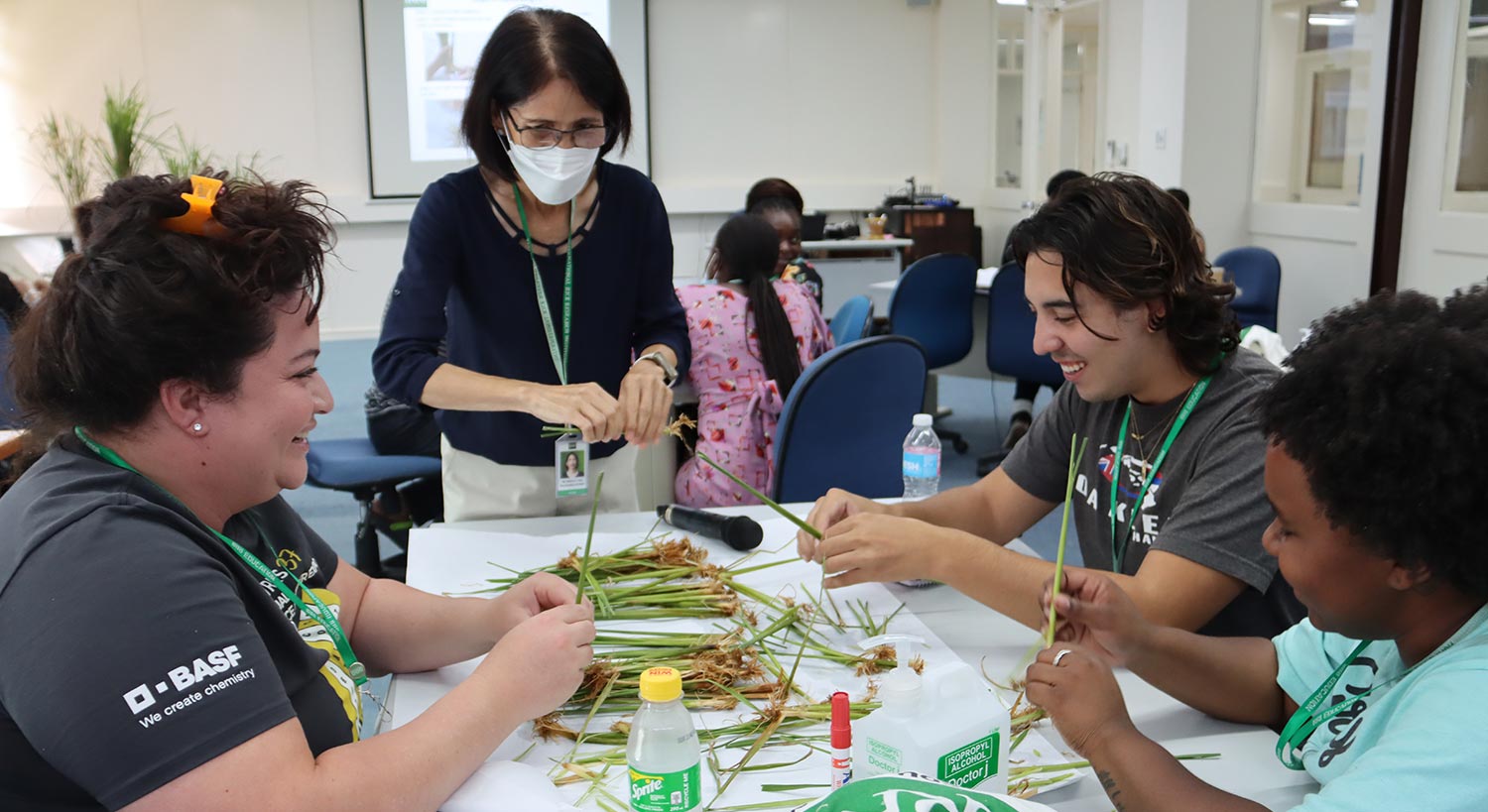The annual Rice: Research to Production (RR2P) course, offered by IRRI Education, began on Monday, May 29, with the participation of 20 graduate students and early career researchers from Asia, Africa, and North America.
The RR2P is an intensive three-week course that aims to provide participants with an appreciation of the changes and challenges in the rice industry from production to market and knowledge on research issues of IRRI and its partners/collaborators, advancements in rice breeding, and structuring effective collaboration within the international research community.
In her message during the course’s opening ceremony, Joanna Kane-Potaka, IRRI Deputy Director General for Strategy, Engagement and Impact, emphasized the significant advancements in rice science, particularly at IRRI, that are expected to play a crucial role in mitigating climate change. “It’s a particularly exciting time and I hope you think about this. Don’t just think about the technical parts of the science behind rice, think about what you are going to contribute to some of the biggest global issues right now. Rice, being a staple for 50% of the population, is absolutely huge. So when you work in one of the biggest crops in the world, you can have the biggest impact”, Potaka addressed the participants.
Meanwhile, Gopesh Tewari, Head of IRRI Education, welcomed the participants to IRRI and gave a brief background and overview of the course, emphasizing that this is one of IRRI Education’s flagship course offerings. Recognizing the diverse backgrounds of the participants, Tewari urged them to engage in meaningful interactions and mutual learning. Above all, he emphasized the importance of engaging with the resource persons, who are esteemed experts in the field of rice science.
In the following weeks, the participants are expected to understand the basics of rice production, become familiar with the diversity among rice varieties, appreciate research and development issues related to food security, acquire hands-on skills relating to rice production and breeding, as well as understand how to structure effective international collaborations. These sessions will be done through a mix of classroom lectures, group discussions, and hands-on field activities.
Aside from visiting IRRI fields and laboratories, the participants will also have the opportunity to visit several agricultural institutions and companies to learn how some challenges to global food resources are addressed by different agencies and institutions based in the Philippines.
Since 2008, IRRI Education has been delivering the RR2P course to graduate students and early-career researchers around the world with the ultimate aim of creating a new generation of plant scientists that are well-networked within the international community.
For inquiries, you may email education@irri.org.


